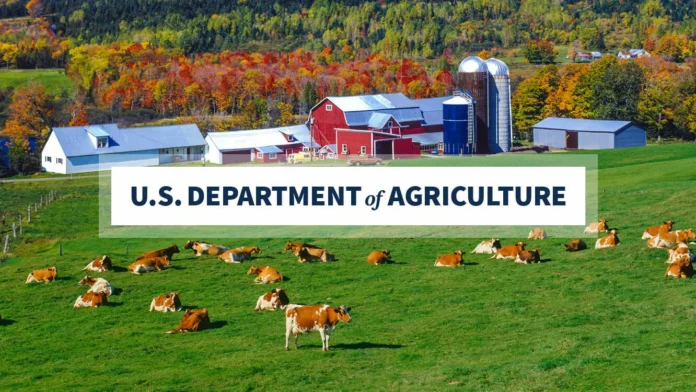WASHINGTON, February 7, 2024 – The U.S. Department of Agriculture (USDA) has taken a significant step towards strengthening local and regional food systems. In a press conference held today, Agriculture Secretary Tom Vilsack announced that the USDA has awarded over $270 million in cooperative agreements to state departments of agriculture, in order to build resilience across the middle of the food supply chain.
This funding, which is being awarded through the Resilient Food Systems Infrastructure program, is a crucial investment towards ensuring a robust and sustainable food system. Administered by USDA’s Agricultural Marketing Service (AMS), the program aims to address the challenges faced by the food supply chain, particularly in the wake of the ongoing COVID-19 pandemic.
The pandemic has highlighted the vulnerabilities of our food system and the need for a more resilient and localized approach. The USDA’s initiative will not only help to strengthen the food supply chain but also support local and regional food systems. This is a significant step towards creating a more sustainable, equitable, and secure food system for all.
Secretary Vilsack emphasized the importance of this program, stating, “The Resilient Food Systems Infrastructure program is a critical investment in our nation’s food security and rural economies. By supporting local and regional food systems, we are not only strengthening our food supply chain, but also creating jobs and economic opportunities in rural communities.”
The cooperative agreements awarded by the USDA will support a range of activities, including infrastructure improvements, development of new markets, and the deployment of innovative technologies. This will not only help to address immediate challenges but also create a more resilient system for the future.
One of the key objectives of the program is to build resilience across the middle of the food supply chain. This means strengthening the links between producers, processors, and distributors, which are often the most vulnerable parts of the supply chain. By investing in infrastructure improvements and new technologies, the USDA is working towards creating a more efficient and reliable system that can withstand future disruptions.
Moreover, these investments will also support small and medium-sized agricultural businesses, which have been disproportionately impacted by the pandemic. By strengthening local and regional food systems, the USDA is providing a lifeline to these businesses, helping them to sustain and grow in the face of adversity.
The Resilient Food Systems Infrastructure program is also a step towards a more sustainable and equitable food system. By supporting local and regional food systems, the USDA is promoting a more localized approach to food production and consumption. This not only reduces the carbon footprint of the food supply chain but also supports local economies and reduces food waste.
The USDA’s initiative has been welcomed by agricultural organizations and farmers across the country. The National Farmers Union, a leading organization representing family farmers, praised the program for its focus on building resilience and supporting local and regional food systems.
In addition to supporting farmers and local businesses, the investment will also benefit consumers. By strengthening the food supply chain and promoting local and regional food systems, the USDA is helping to ensure that Americans have access to healthy, affordable, and fresh food. This is an important step towards addressing food insecurity, which has been exacerbated by the pandemic.
As we navigate through the challenges brought on by the pandemic, it is heartening to see the USDA taking proactive steps towards building a stronger and more resilient food system. The Resilient Food Systems Infrastructure program is a testament to the agency’s commitment towards ensuring food security, promoting sustainable practices, and supporting rural economies.
In conclusion, the USDA’s investment of over $270 million in cooperative agreements with state departments of agriculture is a significant development towards strengthening local and regional food systems. This initiative will not only help to address immediate challenges but also create a more resilient, sustainable, and equitable food system for the future. It is a clear demonstration of the agency’s dedication to ensuring food security and promoting economic opportunities in rural communities.

